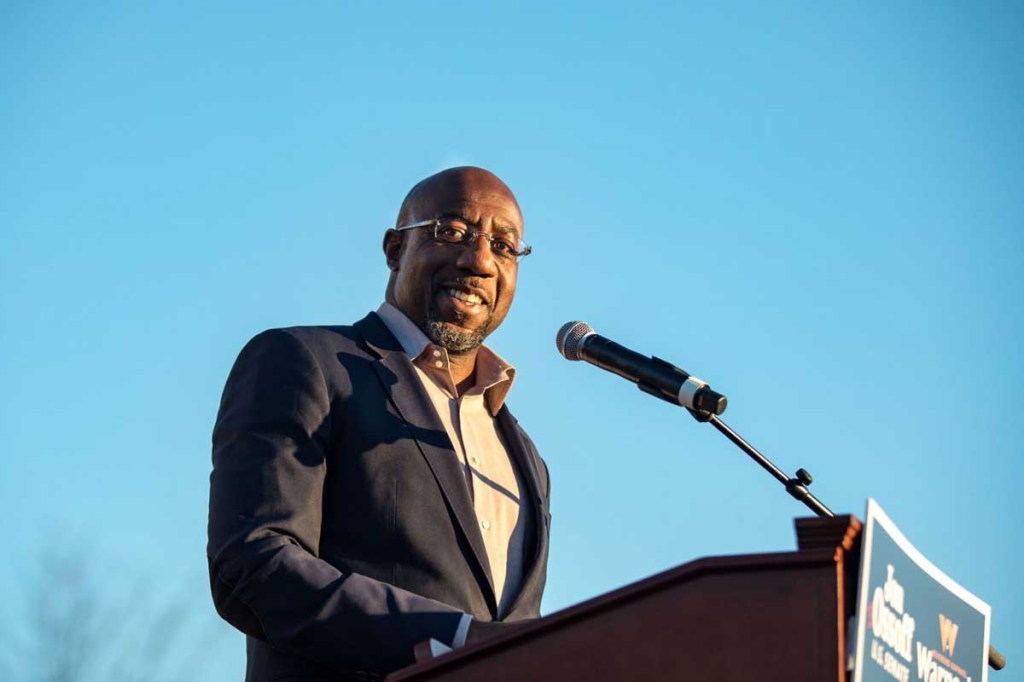Walker still trails Warnock in U.S. Senate race after abortion revelation
Published 10:53 am Friday, October 14, 2022

- Rev. Raphael Warnock speaks at a rally in Jonesboro on Nov. 20.
ATLANTA — Herschel Walker’s abortion scandal appears to have had no effect on polling numbers in his race for Georgia’s U.S. Senate seat. But he still lags behind incumbent Democrat Raphael Warnock, who holds at least a 2-point lead in most polls.
Trending
In a Quinnipiac poll of more than 1,100 likely voters conducted Oct. 7-10, Warnock led Walker, the Republican nominee, 52% to 45%. In its September poll, Warnock led Walker 52% to 46%.
An Emerson College Polling survey of Georgia voters performed Oct. 6-7, showed Warnock led Walker 48% to 46%. Four percent of voters were undecided.
Those polls follow The Daily Beast‘s Oct. 4 report of claims that Walker paid a former girlfriend to have an abortion in 2019, despite his vocal support for banning abortion nationwide. The woman reportedly showed the outlet a get-well card from Walker and a copy of a check from him she claimed to have received five days after the abortion.
Walker, however, has denied the claims.
Following the Supreme Court’s decision to overturn Roe v. Wade in its June 24 Dobbs v. Jackson Women’s Health ruling, abortion remained a controversial and widely talked about subject in political campaigns.
But as elections near, abortion appears to have taken the backseat.
In a September Atlanta Journal-Constitution poll of 861 likely voters, 20% said cost of living was the top issue facing the country, followed by threats to democracy (17%), and jobs/economy (16%). Only 5% picked abortion as a top issue.
When asked to pick the second-most important issue, AJC pollsters said jobs/economy (18%), immigration/border security (16%) and cost of living (15%). Ten percent said abortion was their second-most important issue.
“Even though voters may not approve of the Dobbs decision, which we’re still seeing that, the fervor and the priority that they’re putting on abortion now compared to the summer has begun to recede,” said David Johnson, CEO and founder of Strategic PR Vision in Atlanta.
Alternatively, Republicans have spent less time speaking on abortion and more on issues deemed more important to voters based on the polls, Johnson said.
However, Jake Riley, a newly registered Georgia voter, said while a candidate’s position on jobs, protecting the integrity of elections and voter access, are most important to him, “pro-choice” candidates are also more favorable to him.
“I think if (lawmakers) can tell women what to do, they can tell men what to do, too,” said Riley, identifying as a typical Democrat who has voted for Republican candidates on occasion. “It’s a matter of the government telling a person what they can do. If the government had told me I can’t have a vasectomy, I wouldn’t want that. So it’s like a matter of, in general, human rights, I think.”
Johnson admits that Republicans have failed to have messages that appeal to the female demographic. Instead, he said, many Republican candidates seem to have made a trade-off in going toward working-class Hispanics.
“In doing so, they’re trading college-educated females for working-class Hispanics because they see like in the sunbelt states like Arizona, Texas, New Mexico, the issues that they’re talking about — even their stand on abortion — appeals to working-class Hispanics,” Johnson said. “If you look at the polling, college-educated females are adamantly opposed to the Dobbs decision. Abortion is a key factor for them.”
The Emerson College Polls notes the difference in female support of Walker and Warnock.
“The gender gap in the Senate race has shifted in the Democrats’ favor since August,” Spencer Kimball, executive director of Emerson College Polling, said. “Republican Walker’s 8-point advantage with men has closed to 6, and Warnock’s lead with women has grown from 5 points to 9.”
The Warnock-Walker matchup is a key race nationally in determining which party controls the Senate. Libertarian candidate Chase Oliver is also on the ticket for the U.S. Senate seat.





